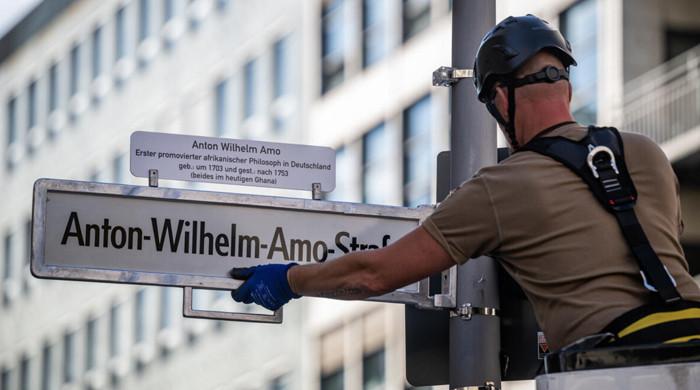A central street in Berlin will officially rename on Saturday for an African philosopher of the 18th century after years of debate about its current name, Mohrestrasse (“Mours’ Street”), seen as outdated and offensive.
The Local Council of the Central District of Mitte announced for the first time in 2020 that he wanted to change the name of the street to Anton Wilhelm Amo Street, after the first black philosopher known to have taught in a German university.
The Mohrestrasse Metro station will also take the new name on Saturday, a date chosen to coincide with the International Day for the memory of the slave trade.
“It is a great success for civil society, which has been pressing for a change of name for more than 30 years,” said Tahir Della, of the Decolonise Berlin group, who is organizing celebrations to mark the change of name.
“It makes clear why the previous name is so problematic for many blacks in Germany,” he said.
The origins of the current name are not clear.
It goes back at the beginning of the 18th century, the height of the Slave Trade of the Atlantic, and some have suggested that it can refer to the former slaves who settled there.
Another theory is that it refers to an African Visiting Diplomatic Delegation.
Whatever its precise origins, Della said the name is a “racist description for blacks.”
However, local residents increased legal challenges against the Council to try to stop the name change.
A last -minute judicial decision on Friday briefly threatened to derail the process, even after the workers had already begun to change the street signs.
However, a superior court revoked the decision hours later, allowing the change of name to continue.
Born around 1700 in what is Ghana today, it is believed that Anton Wilhelm Amo was sold as a slavery when he was a child and then brought to Europe.
Later he had the opportunity to receive an education that led him to the prestigious universities of Wittenberg, Halle and Jena, becoming an important figure in the period of Germany’s Enlightenment.
Decolonise Berlin says that the new name honors a “resistance, self -affirmation and knowledge symbol in the African diaspora”.
Della said he hopes that the name change will serve as a “impulse for more discussions on public spaces,” pointing out debates about other street names in Berlin in honor of the figures of the colonial past of Germany.




